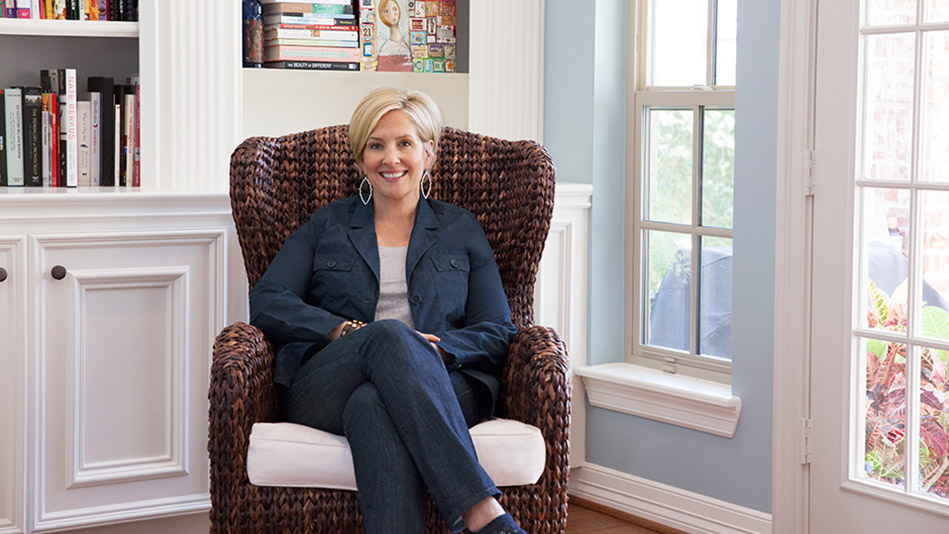Brené Brown: 3 Ways to Improve Your Relationship
How to nurture and grow your connection to the one you're with.

Photo: Leann Mueller
I was once asked whether you can love your partner and still cheat on him or her. Reflecting on my research, I concluded that though you may feel love, you're not practicing love when you betray someone—and that is what's important. Professing love is easy. Practicing love takes courage.
I believe that love is not something we give. It's something we cultivate, by allowing our most vulnerable and powerful selves to be seen, and honoring the spiritual connection that grows from that offering with trust, respect, and affection. The visuals that go along with love—rainbows, hearts, cherubs—don't reflect what I'm describing. Love requires tenacity and grit. It's work. It's the most difficult thing I've ever done. So when people say, "Love shouldn't be this hard," I think, "Why not?" We get so much from our most important relationships—it makes sense that we have to invest a lot of time, effort, and some serious self-reflection into them.
Craft your own definition.
Talk with your partner about what love means to you both. That way, you'll be more accountable for helping to cultivate it in your home.
Ask for what you need.
Every day I tell my husband, Steve, that I love him. But sometimes, when I'm tired or anxious, I can get blamey and critical. It's easier to lash out at the people we love than to ask for support and TLC. But now when I'm stressed, I'm trying to remember to say, "I need some extra sleep. Can you tuck in the kids tonight?"
Say you're sorry.
Shame, disrespect, betrayal, and the withholding of affection poison the groundwater from which love grows. So when we've acted in ways that don't reflect the love we feel, we need to own it, apologize, and listen to how our actions affected others. Making amends is an important way to practice love.
Brené Brown, PhD, is the author of Daring Greatly (Gotham Books).
More from Brené Brown
I believe that love is not something we give. It's something we cultivate, by allowing our most vulnerable and powerful selves to be seen, and honoring the spiritual connection that grows from that offering with trust, respect, and affection. The visuals that go along with love—rainbows, hearts, cherubs—don't reflect what I'm describing. Love requires tenacity and grit. It's work. It's the most difficult thing I've ever done. So when people say, "Love shouldn't be this hard," I think, "Why not?" We get so much from our most important relationships—it makes sense that we have to invest a lot of time, effort, and some serious self-reflection into them.
The Dare
Craft your own definition.
Talk with your partner about what love means to you both. That way, you'll be more accountable for helping to cultivate it in your home.
Ask for what you need.
Every day I tell my husband, Steve, that I love him. But sometimes, when I'm tired or anxious, I can get blamey and critical. It's easier to lash out at the people we love than to ask for support and TLC. But now when I'm stressed, I'm trying to remember to say, "I need some extra sleep. Can you tuck in the kids tonight?"
Say you're sorry.
Shame, disrespect, betrayal, and the withholding of affection poison the groundwater from which love grows. So when we've acted in ways that don't reflect the love we feel, we need to own it, apologize, and listen to how our actions affected others. Making amends is an important way to practice love.
Brené Brown, PhD, is the author of Daring Greatly (Gotham Books).
More from Brené Brown



